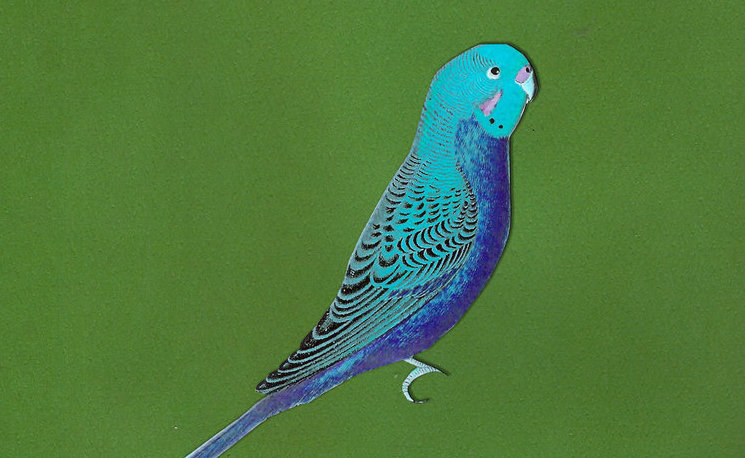Meg Freitag’s Edith — a simultaneously startling, exhausting, and compelling collection of poetry — is about a dead bird. More specifically, it is a book about lost love via poems addressed to a dead parakeet. It is a book of nostalgia and longing, hipness and vulnerability, and imagery, man, so much rich imagery. It’s okay if you’re surprised that Edith, winner of the 2016 BOAAT Press book prize, is Meg Freitag’s first book. I certainly was.
 Here’s a sample, from “What Small Death Shines Up From the Dirt,” which begins the book’s second section:
Here’s a sample, from “What Small Death Shines Up From the Dirt,” which begins the book’s second section:
I think I’ve been trying to replace you, Edith.
Lately I’ve lit fires in my mouth
That can only be put out with another mouth. He and I
Found a baby rattlesnake injured
In the middle of the road. Half its body stuck
To the blacktop, the other half looping around
And around its own busted part like a busy
Signal. He said, The babies are the most dangerous.
Everyone knows that, I said. But still he had to stop me
From wrapping the leftover part of the snake up
In my t-shirt and carrying it home.
I thought if I saved it, it would be so grateful
It wouldn’t try to hurt me. Edith, I’m afraid I can only love myself
If someone else loves me first. One time I let him have me
Against the sink in a TJ Maxx bathroom
And we didn’t even leave our merchandise outside.
Edith uses one loss to address another. Many of the collection’s poems are addressed to the speaker’s parakeet — whom we’re given to understand was eaten by the speaker’s dog, possibly when the speaker left Edith unattended — but they’re really about the end of the speaker’s relationship with a lover, as well as broader feelings of loneliness and anxiety. Edith, the bird in question, functions as muse and confessor; the speaker uses addresses to Edith to expunge and express her sorrow. Think “Dear Diary,” but directed at a dead bird, which yes, can be strange. Edith is an often uncomfortable, cringingly confessional book.
And the speaker is pathetic, abjectly so, in her misery. Yet her voice also reminds me of the speaker(s) in Tommy Pico’s recent work (i.e., IRL and Nature Poem): Edith’s speaker comes across as both too cool for school and nakedly vulnerable; the mix is strangely attractive. A good example of Freitag’s vulnerability and startling imagery are the first few stanzas from “Reading the News on My iPhone During a Snowstorm”:
 Jason Molina is dead now, too.
Jason Molina is dead now, too.
They found him in Indianapolis,
Indiana, with nothing
But a cellphone in his pocket. And this is why
I am crying in the airport in Queens, New York
Eating a five-dollar package of Craisins
And texting everyone I can think of
Before they make me shut my phone off.
The texts say only, Jason Molina : (
Without you, Edith, every day I throw something new
Into the tar pit of my soul…
The details are so rich that I almost don’t know where to begin: first, the too-young death of the talented musician Jason Molina (he was thirty-nine and drank himself to death); crying in either JFK or LaGuardia (I choose to believe LaGuardia, because one would likely admit to being in JFK) while eating an overpriced package of Craisins (!); the ridiculous sad-face emoji text that the speaker sends over and over; and then the lovely turn toward Edith and the lacerating self-hatred of the “tar pit of my soul.”
Indeed, if Freitag’s work has a major strength — aside from disarming forwardness — it is her compact, evocative imagery. Throughout the collection we’re given the heart as a fat housecat; eating “Cinnabon after Cinnabon” in a mall food court until the speaker is sick; two scorpions “fucking each other to death in a glue trap”; and the speaker’s father pouring a “warm Snapple” over the speaker and her sister after they’d swum through a school of jellyfish.
As noted, I was surprised by Edith, and not just because it reads as more mature than a first collection. Confessional poetry — particularly work that deals with the end of a relationship — is exceptionally tricky to pull off without coming across as navel-gazing and self-centered. Edith, however, is a remarkable work of pathos, using the inward gaze to illuminate both the self and everything around that self.
Note: review title borrowed from Edith’s “The Outside Bird.”




